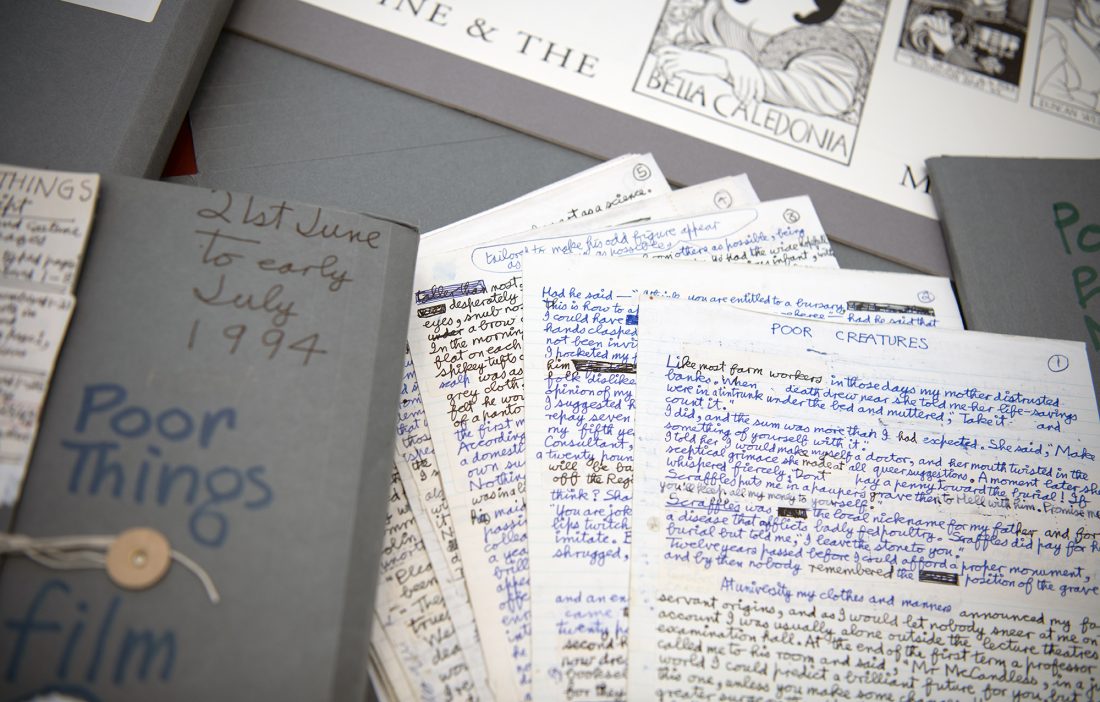
Last piece of Alasdair Gray archive joins Poor Things at National Library
The National Library of Scotland has bought the last and final tranche of archive material by renowned author, artist and playwright, Alasdair Gray.
The Library’s collection of Alasdair Gray material is the largest and most comprehensive collection of Gray’s literary and personal materials.
After his passing four years ago, the Library continued working with the Estate of Alasdair Gray via his son, Andrew, to ensure public access to Gray’s work.
‘Alasdair through a combination of financial necessity and frequent reorganisation of his studio has, over the years, contributed a large quantity of correspondence, diaries and manuscripts to the Library,’ Andrew said.
‘He would be happy that his collection has remained in Scotland and that in line with his socialist principles, his papers will be accessible to the public for the purposes of research, education and amusement.’
The vast archive includes the manuscript and early screenplay drafts by Gray for ‘Poor Things’.
The film, directed by Yorgos Lanthimos, scooped major awards at the Golden Globes earlier this year, including Best Actress for Emma Stone’s lead role, and Best Film in the musical/comedy category.
New additions to the archive include drafts and working manuscripts of Gray’s writings including illustrated notebooks and film storyboards.
There is also correspondence with publishers, literary agents, writers, artists, and friends, as well as extensive files of research material, designs and drawings, printed material and ephemera, and a selection of annotated books from Gray’s own library.
‘Alasdair Gray is unique in that he has a loyal following in academia and people who enjoy reading more generally,’ said manuscripts curator Dr Colin McIlroy.
‘His literary and artistic work is intrinsically informed by and deeply embedded in Glasgow, where – aside from a spell in Wetherby during the Second World War – he lived and worked his whole life.
‘During his lifetime we had the privilege of his acquaintance, and it was clear that he lived and breathed art, as much as he lived and breathed his home city.
‘We are deeply honoured to continue to care for his artistic and personal effects.
‘Providing public access to his archive will ensure Gray lives on in our collective psyche – both in Scotland and internationally – for many decades to come.’
TAGS

